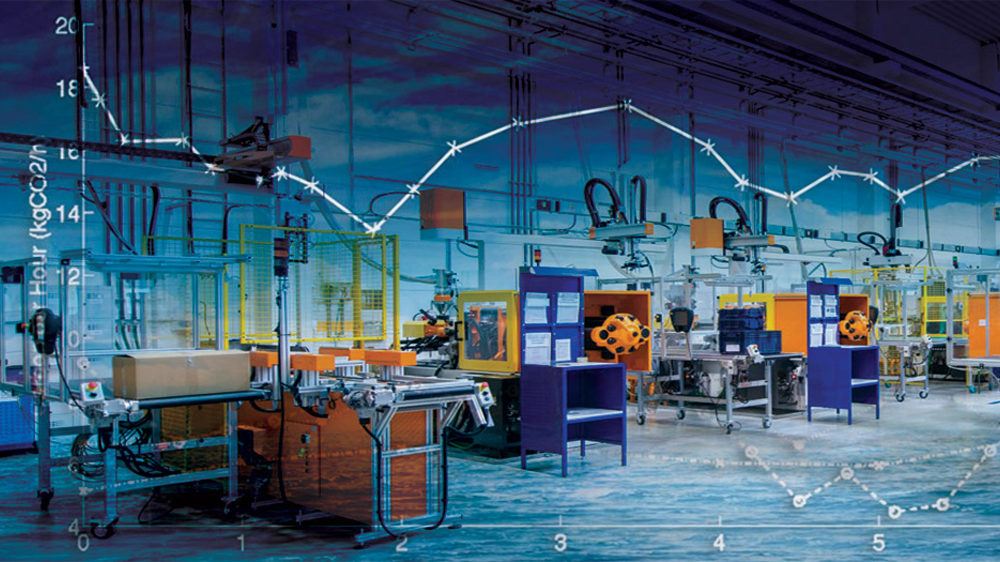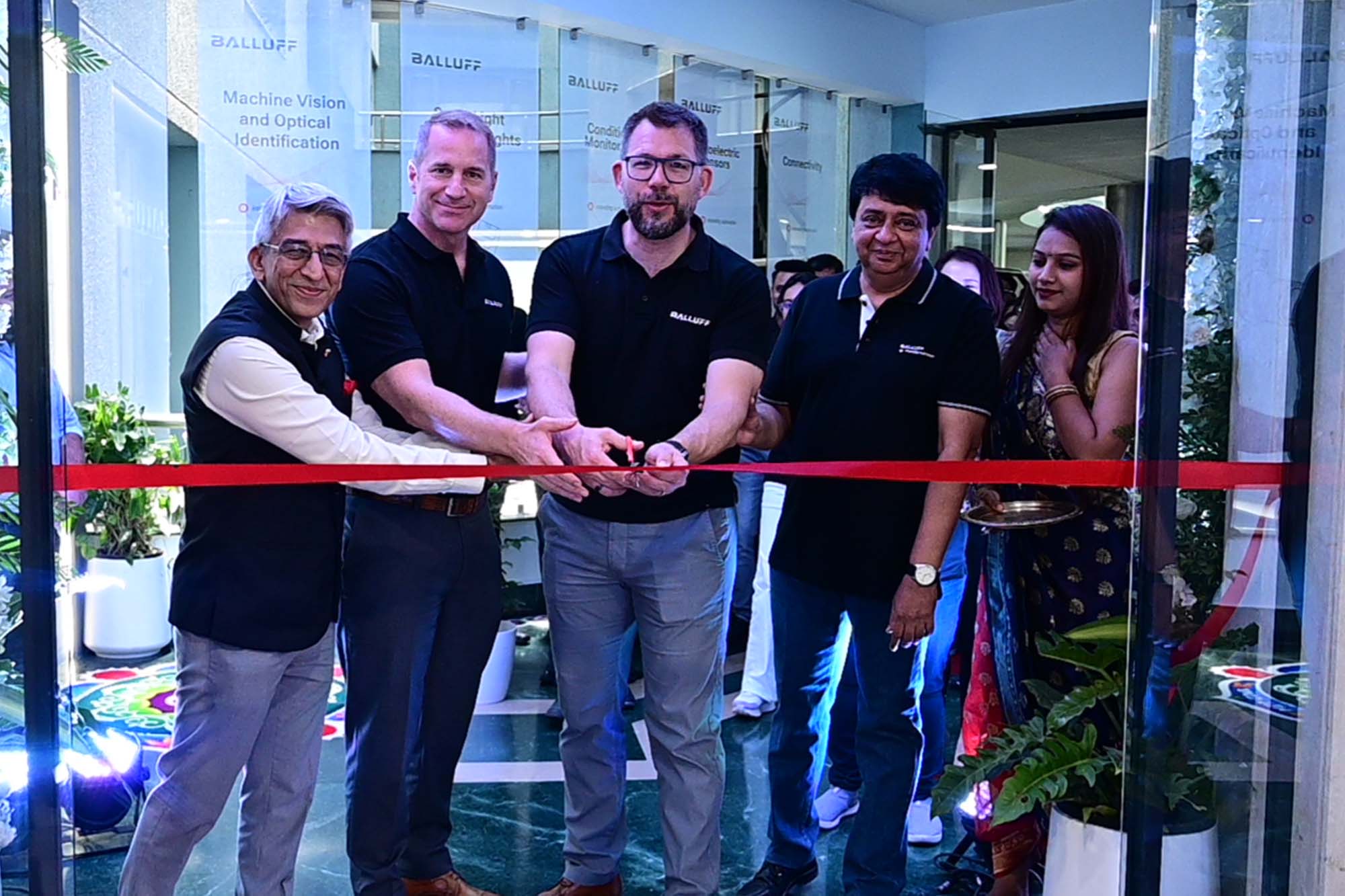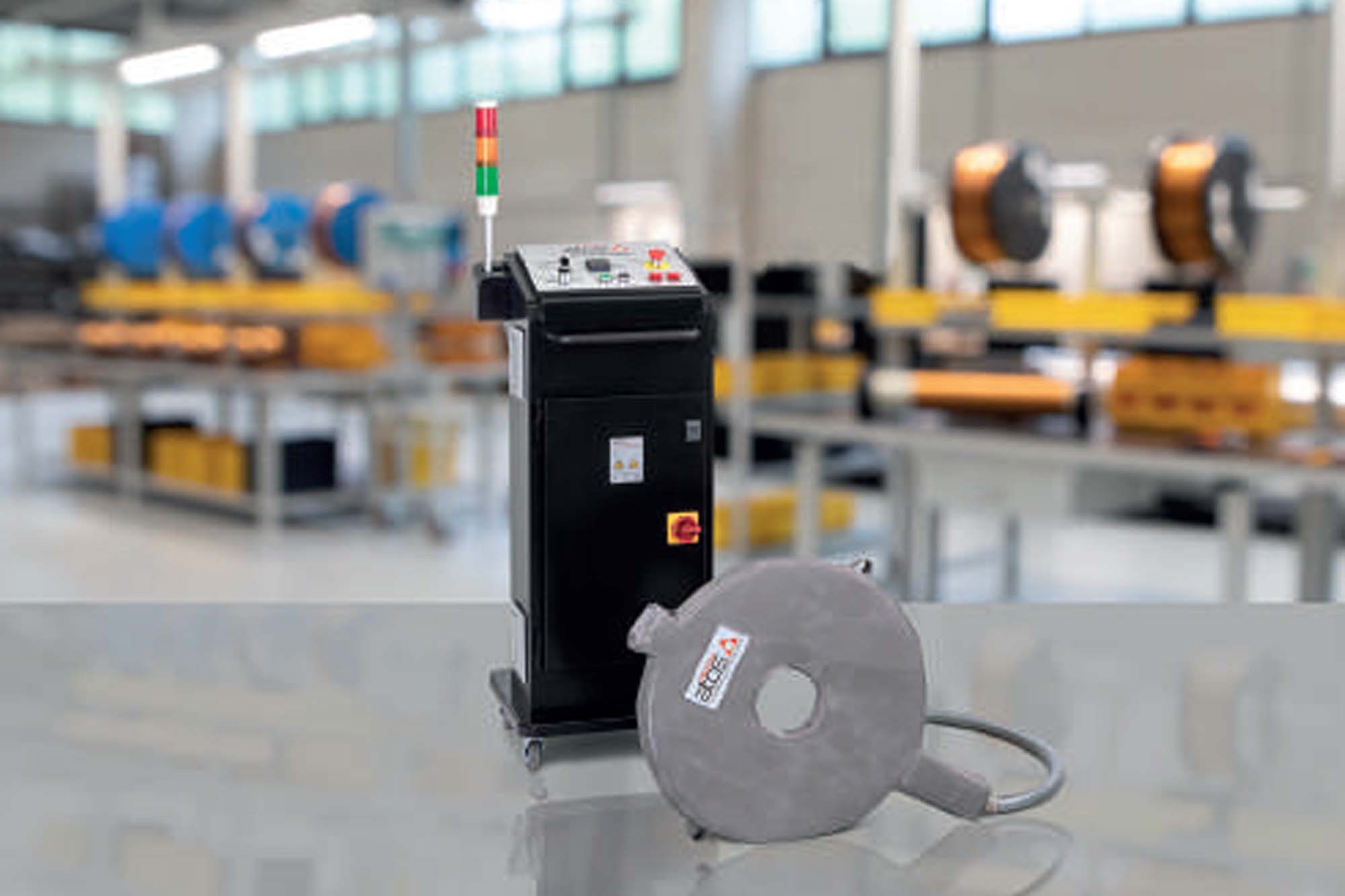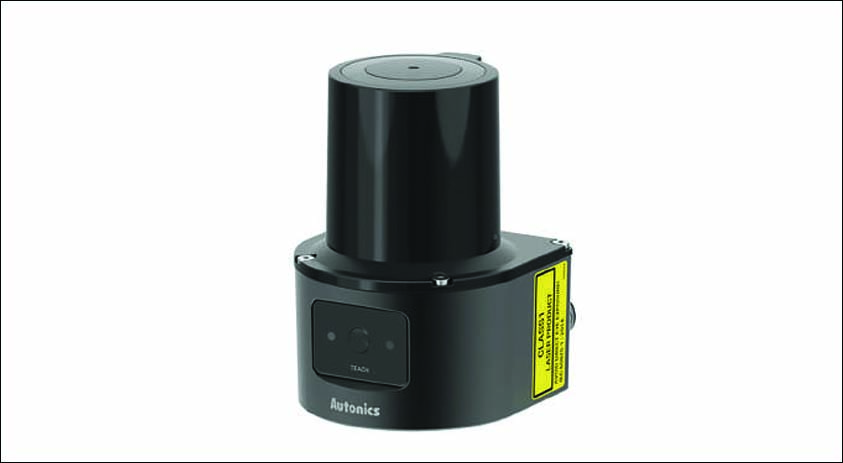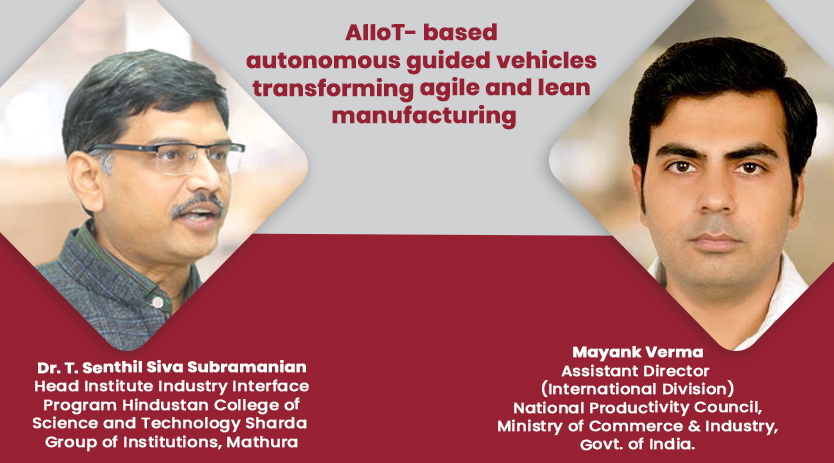Energy management in manufacturing
By OEM Update Editorial May 14, 2018 12:45 pm IST
Highlighting the importance of managing energy in manufacturing facility.
Energy intensive manufacturing industries in India account for 60 per cent of total Industrial electricity consumption. In some of these facilities, energy costs are 25-35 per cent of total production costs.
The Indian government has sought to encourage investment in Indian manufacturing with ‘Make in India’ initiative, which underscores other attractive aspects of manufacturing in India, such as the low cost of labour. However, power rates remain a major cost of doing business in the country.
Innovative measures for energy management
Dr. Harald Griem, Executive Vice President and Head – Energy Management Division, Siemens Ltd, says, “The low reliability in energy supply causes steep increase in fuel prices by addition of diesel generators and increase in power demand charges. This makes it imperative for facilities to explore new technologies (e.g. Battery storage) and right energy-mix (use of renewable energy, open access power), to optimise their energy procurement and consumption in most efficient and sustainable manner.
Adoption of effective energy management system is essential
Manufacturing sector is one of the highest growing sectors. It is also a power intensive sector involving great energy consumption. Since energy expenditures are one of the highest operating expenses in most manufacturing plants, increasing energy efficiency by reducing consumption can help companies not only reduce operational costs and sustain their competitiveness. Therefore, adopting an effective energy management system is essential for improved profitability and sustainability.
Sudhir Dembi, General Manager, Digital Plant, Industry Business, Schneider Electric, says, “The world is moving towards innovation and digitisation leveraging Internet of Things (IoT), this development is greatly benefitting the manufacturing sector by providing information at right time, at right place to the right people. Integrating IoT enabled innovations to the manufacturing processes can help the manufacturers to manage energy efficiently and effectively at a lesser cost. Resulting in reducing the carbon emission thus leading to economic savings for the manufacturing units.”
He adds, “Committed to the cause of ensuring energy efficiency in manufacturing facilities, Schneider Electric offers world-class energy management solutions empowering users to manage energy consumption with greater precision and accuracy, reducing operational costs and improving profits.”
Effective energy management is more important than ever before!
According to Syed Sajjadh Ali, Managing Director – India, Electrical Sector, Eaton, Industries today consume more than one-third of the primary energy worldwide. This affects energy prices, emissions targets, global warming and legislations, all of which lead to several compelling reasons why a manufacturing facility should focus on saving energy.
In addition, Energy is a significant element that boils down to the final cost of a product. He opines, “Today, in the manufacturing space with speed becoming critical and automation a necessity, managing energy effectively, efficiently and safely acquires top importance.”
In the light of these facts, some of the most important reasons why effective and sustained energy management is imperative are:
• To reduce the damage that’s happening to the planet, Earth. Effective energy management can substantially reduce greenhouse gas (GHG) emissions and other environmental impacts associated with energy consumption.
• To reduce the dependence on the fossil fuels that is becoming increasingly limited in supply.
• To reduce risk –With energy management, one has to reduce the risk by optimising the demand for energy and by controlling it to make it more efficient and effectively manageable.
• To reduce cost energy-related operating costs thereby helping maximise profits and enhance competitiveness. This is becoming increasingly important as energy costs rises.
Cost saving ideas for manufacturing
Venugopalan C M – Head, Bosch Energy and Building Solutions, says, “It is no secret that resources are scarce and climate change is real. In this context, global corporations have a responsibility to drive universal and global change. While usage of energy has the potential to be one of the best cost savings method, it has become one of the most intangible and hard-to-manage costs in manufacturing, with high levels of unpredictability and instability. For industries, there should be a greater emphasis in the form of incentives to reduce their carbon footprints individually and collectively make a change. We need to understand the threats first and how best it can be used to make the most of the energy efficiency initiatives.”
Countries and organisations that unravel this riddle will gain the most benefits in the long run and help the planet as well. Venugopalan feels that energy management is often ignored in a manufacturing facility, due to some misconstrued perceptions including high early investment, low production rates, etc. He adds, “Keeping up with the fundamentals like maintaining pipework and closing doors as much as possible can cut energy costs by a huge margin. We often ignore and keep using the inefficient and old machineries.”
Small things like ignoring poorly operating boilers can add up to the heating costs. Companies need to build systems and processes in a manner that minimises energy usage and eliminates energy wastage during manufacturing. Example, Bosch incorporates the usage of IoT sensors and Smart Manufacturing in its plants to monitor energy usage and efficiency. On the energy savings side, Bosch Energy and Building Solutions, a division of Bosch India, implements energy efficiency solutions that are custom designed to the plant’s processes and provide substantial energy cost savings to both Bosch plants and industries like automotive, steel re-rolling, dairy, textile, pharma and manufacturing. Companies must realise that energy management is a step towards green manufacturing and sustainability. This will not only result in significant emission reduction and economic savings but also give them a competitive advantage. Organisations with success stories should empower their counterparts and help them achieve this goal. With the threat of climate change intensifying, it’s now all the more important for industries to come together and tweak their philosophies and processes for the greater good.
Understanding usage patterns
Manish Walia, Head – Industrial Automation Business Group, Delta India, says, “Energy management systems are being deployed around the world to improve energy and facilities management and to help reduce electricity and fuel. The Indian manufacturing industry has also shown the urgency in energy savings. The energy management systems can assist the plant managers and corporate management in first understanding and then actively managing energy use and cost.”
Understanding the patterns of all forms of energy use and other utilities is the first step in assessing the potential for efficiency savings. The majority energy consumption in the plant is for production activity. Each product manufactured will be measured by energy consumed to make one unit of product.
With energy management system, the plant manager can measure as well as reduce energy by close monitoring of machinery run hours and prevent idle running of machine and thereby reducing the specific energy consumption of manufactured product. With the data available through system, energy management system can guide the plant manager to organise and display (visualise) key energy and other parameters in real time thus providing a tremendous diagnostic tool for identifying and solving energy problems and appreciating opportunities for cost savings. Energy management system helps in planned shutdown based on run hours and efficiency of the equipment. This reduces down time and helps plan predictive maintenance. Reducing peak demand is equally crucial as this helps in the reduction of associated demand charges. Time to time verification of daily load profile will help identify and manage the demand spikes. This verification helps establish a pattern to bring down the overall demand charges paid to the electricity board.
Advanced solutions for manufacturing:
SIESTORAGE – The modular energy storage system for a reliable power
Dr. Griem from Siemens informs, “The electrical energy storage system SIESTORAGE is a key element of Siemens solutions towards the challenges of reliable power supply in manufacturing industry. SIESTORAGE is made possible by Siemens high performance power electronics, automation, and state-of-the-art Li-ion battery technology. Its fast and accurate response times allow it to consume and discharge energy with high precision, helping to provide an assured power quality. The integration of the cabinets into containerised enclosures that are delivered as pretested and pre-commissioned systems helps to reduce expensive and time-critical integration on site.”
SIESTORAGE can be used for a wide range of energy distribution applications (scalable units from the Kilowatts range to Megawatts) in industries, where fast response time is critical. Some of the key applications in manufacturing industry using SIESTORAGE are diesel offset, peak shaving, and critical power. Based on problem statement of a manufacturing facility, SIESTORAGE solution can be designed to meet those challenges.
With SIESTORAGE, Siemens also offers investment solutions to help address tomorrow’s energy needs today. With a global network of energy finance professionals, the company provides capital and expertise that is backed by more than 160 years of Siemens’ industry innovation, financial strength and diligent risk management.
EcoStruxure – Schneider Electric
Eaton’s Power Xpert 9395P UPS systemSajjadh Ali from Eaton informs, “For over 100 years globally and close to three decades in India, we have helped our customers, manage electrical, mechanical and fluid power more efficiently, reliably, safely and sustainably. Be it electrical solutions that use less energy, improve power reliability and make the places we live and work safer and more comfortable or hydraulic or electrical solutions that enable machines to deliver more productivity without wasting power, Eaton continues to respond to some of the most critical challenges that industries face today. One of our most advanced offering in this space is our Power Xpert 9395P UPS system.”
Eaton’s Power Xpert 9395P UPS can operate at up to 96.3 per cent efficiency in double conversion mode and at 99 per cent efficiency in energy saver system mode, thus reducing utility costs and extending battery runtimes. It also delivers 10 per cent more power and generates 18 per cent lesser heat. The 9395P is also complemented by The Eaton Advantage Architecture (EAA) – an umbrella name for the complementary, innovative energy-saving technologies by Eaton – Energy Saver System (ESS) and Variable Module Management Systems (VMMS) – which offer new ways to maximise UPS energy efficiency without compromising on reliability. These technologies allow engineers and facility managers to get the best possible performance from their UPS while reducing financial and environmental costs.
Ali adds, “The Power Xpert 9395P exemplifies Eaton’s way of doing business right, helping our customers utilise electrical power more efficiently while paying attention to sustainability values.”
Some other major examples of Eaton’s innovative energy management technologies include:
• Energy efficient meters and cutting-edge software such as EPMS Foreseer and Intelligent Power Management (IMP) that monitor manage and control energy
• Efficient fuses and combiner box technologies for 1500Vdc PV applications
• Automatic Power Factor Control (APFC) panel that maintains 99 per cent KVAR
• Multiple parallel redundancy solutions
• Industry leading harmonic filters – to manage disturbances.
Bosch technology for energy efficiency
BEBS offers a complex set of energy efficiency solutions in the form of retrofit applications. These solutions thrive on the division’s expertise in identifying right areas for reduction of energy consumption and implementing cost-effective projects that derive savings immediately. Venugopalan C M from Bosch Energy and Building Solutions explains, “With the help of these solutions, automotive plants have started benefiting from 55 per cent energy savings in the component washing process and even steel re-rolling mills with 20 per cent energy savings in their furnace operations. The intangible benefits of these solutions are not very apparent until the solutions are completely implemented. Some industries have even experienced an improvement in the quality of their products, after these energy efficiency interventions.”
By implementing the steam distribution optimisation solution at a valve manufacturing company in South India, BEBS successfully brought down the costs associated with steam utilisation by close to 30 per cent, along with 25 per cent savings in water consumption as well. For industries like dairy, the interventions go much deeper into their processes. The integrated heating and cooling solution implemented in dairies combines IoT based sensors and a specially designed stratified tank that helps in synchronising the energy supply with the process demand. The sensor readings are further visualised with a monitoring platform that provides better insights for operational and financial planning for the dairy plant. Such future-oriented solutions are already helping redefine the way industries in India operate and manage their energy consumption.
He adds, “One clear aspect that stands out is that these energy efficiency solutions can be customised and implemented in any manufacturing industry for comprehensive energy management. All that is required is a clear intent and motivation on the part of the industry to tap into this potential.”
Delta’s smart factory energy-saving solution
Walia from Delta India informs, “Delta’s Energy Management System allows users to immediately monitor their energy consumption status and loading analysis, as well as optimise device operations, improve power efficiency and analyse the energy consumption of each device and system. As energy issues continue to simmer, energy policies are more common and are becoming stricter in many countries.”
Under the consensus of an environmentally-friendly and sustainable business, it is imperative for factories to adopt energy-saving programs. Walia opines, “Delta’s smart factory energy-saving solution provides three step energy-saving strategies including machines and equipment energy-savings, system energy-savings and management energy-savings. In addition to energy-saving control devices such as variable frequency drives and power regeneration units, Delta also provides services for system diagnosis, revamping, and power efficiency optimisation through data visualisation and real-time monitoring systems”.
SIESTORAGE is a key element of Siemens solutions towards the challenges of reliable power supply in manufacturing industry.
Dr. Harald Griem, Executive Vice President and Head – Energy Management Division, Siemens Ltd
EcoStruxure enables, Schneider Electric to leverage its world-class competencies to deliver solutions to its customers at all levels of energy utilisation.
Sudhir Dembi, General Manager, Digital Plant, Industry Business, Schneider Electric
Eaton’s Power Xpert 9395P UPS can operate at up to 96.3 per cent efficiency in double conversion mode and at 99 per cent efficiency in energy saver system mode.
Syed Sajjadh Ali, Managing Director – India, Electrical Sector, Eaton
BEBS offers a complex set of energy efficiency solutions in the form of retrofit applications.
Venugopalan C M – Head, Bosch Energy and Building Solutions
Understanding the patterns of all forms of energy use and other utilities is the first step in assessing the potential for efficiency savings.
Manish Walia, Head – Industrial Automation Business Group, Delta India
Cookie Consent
We use cookies to personalize your experience. By continuing to visit this website you agree to our Terms & Conditions, Privacy Policy and Cookie Policy.



